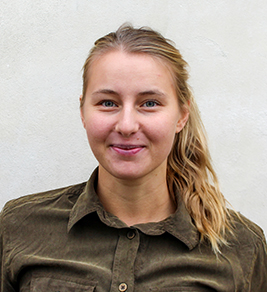Hedda has an academic background in environmental science and policy, within both research and communication for sustainable regional development. She has contributed to research on nature-based solutions in urban landscapes, as well as socio-environmental challenges in rural areas. Hedda is especially passionate about ecosystem-based management approaches, green transitions, and building sustainable food systems.
Junior Research Fellow
Hedda Thomson Ek
Spatial Story
It begins and ends with Stockholm. Not for everyone, of course, but for me, that’s how it goes. My dad likes to remind me every year that there were fireworks in Stockholm the day I was born, as if the city itself was celebrating the arrival of another resident in an already crowded place with a notoriously tough housing market. Granted, there was a water festival happening at the time, but I never thanked Stockholm for the welcome. In fact, I couldn’t wait to leave.
In my second year of high school, I studied at the Swedish School in Nairobi, where, surprisingly, I felt oddly at home in a culture so different from my own. After finishing high school, I traveled through South America, where I learned disappointingly little Spanish. I returned to Sweden to become a boat driver and captain in Karlskrona, where I met my partner. Eager for new adventures, we set off for Southeast Asia—just the kind of journey you’d expect from a Stockholmer.
When I felt ready for routines, learning, and deeper connections, I returned to Sweden to study environmental science in Lund. There, meeting international students from all over the world felt like a new kind of travel. But my mind was set on an exchange year in Canada. When Covid put an end to that plan, I continued studying journalism, plotting my next escape. What better way to experience multiple countries in one program?
That’s when I joined the Erasmus+ Master’s program in Environmental Science Policy and Management, a journey that took me across Europe and beyond. I spent one semester in Austria, another in Greece, followed by a summer internship in rural South Africa, a semester back in Lund, and finally, thesis writing in Bogotá, Colombia (y, aún así, mi nivel de español es una decepción).
As though I could make up for my less-than-stellar track record with long-haul flights (and we know it doesn’t work that way), I adopted a personal “trains in Europe” policy whenever possible. Along the way, I learned that the stereotypically efficient German train system doesn’t always live up to expectations, while Italy’s famously relaxed approach somehow keeps things running smoothly. Over the last two years, my Interrail app shows that I’ve spent 10 days, 10 hours, and 44 minutes on trains—covering 21,455 kilometres and passing through 58 places in 11 countries. And it all ended in Stockholm.
Now, with the opportunity to be a part of Nordregio’s team, I’ve returned to the city where it all began. And with wonderful international colleagues and workspace, I’m more excited than ever to rediscover my hometown, my country of birth, and especially the region I call home: Norden.
